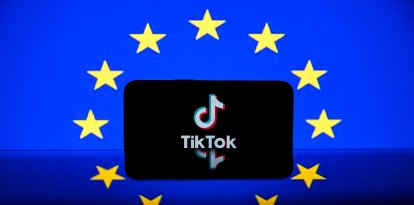The incredible plot of the Israeli shell company behind Hezbollah's exploding pagers in Lebanon and Syria
A New York Times report noted that the Hungarian firm BAC was used as a front by Jerusalem to insert explosives into the devices and send them to the terrorist organization after its leader, Hassan Nasrallah, ordered his officers to stop using their cell phones for fear that they would be tapped by Israeli intelligence.

The remains of some pagers that exploded in Lebanon.
BAC, whose official name is BAC Consulting, the Hungarian company that manufactured Hezbollah's pagers that exploded in Lebanon and Syria Tuesday leaving 11 dead and at least 4,000 wounded, is a shadow company set up by Israel for the purpose of manufacturing and shipping these explosive-laced devices to members of the Iranian-backed Lebanese terrorist organization, said a report by The New York Times.
The U.S. newspaper based its report on conversations with intelligence sources with knowledge of the details of the operation, which has not been claimed by Jerusalem.
The devices that went off Tuesday, on the first day of an attack that continued Wednesday when they exploded walkie talkies in Lebanon leaving 20 dead and hundreds injured, were marketed under the brand name of Taiwanese company Gold Apollo. However, the company claimed that it did not manufacture the devices, but only sold the license to use its brand to the firm BAC; which, according to a BBC investigation, was set up in Budapest, Hungary, in May 2022 and has a single shareholder.
BAC's official address was in a building in the 14th district of the Hungarian capital, where 13 other companies and one person are registered. In addition, according to data from the Hungarian Ministry of Justice, a company with the same name operated until 2020.
The company's clients include, according to a BAC promotional brochure, the European Commission, the U.K. Department for International Development, the Netherlands Ministry of Foreign Affairs and UNESCO.
The brochure further notes that the company was founded in 2010 and engages in business consulting for organizations, although it does not mention the production or marketing of pagers or other communication devices.
In addition, the brochure indicates that the company is run by a woman named Cristina Bársony-Arcidiacono, who maintained in statements to NBC that while she worked with Gold Apollo, she does not manufacture such devices but is only an intermediary.
It is possible that the woman and the promotional brochure refer to the company that closed in 2020, and that the activities are not related to the firm founded in 2022 with the same name, so according to a report published by The New York Times previously, BAC is actually a shell company created and operated by Israel to manufacture pagers with explosives and deliver them to Hezbollah terrorists.
The explosive inserted into the batteries of the devices destined for the terrorist group is called Pent.
Hezbollah was BAC's most important buyer, but the firm also had regular customers for whom it manufactured pagers, the report states. However, it clarifies that those sold to the terrorist organization were manufactured separately.
Hassan Nasrallah, leader of Hezbollah, asked the group's officials to exchange their cell phones for beepers
The first devices were shipped to Lebanon in mid-2022 and for about a year and a half shipments continued but on a limited basis.
However, following a series of assassinations of senior Hezbollah commanders during the current year, Hassan Nasrallah, leader of the terrorist group, called on members of the organization to exchange their cell phones for devices with less advanced technology.
Nasrallah feared that Israel could hack smartphones remotely and install software to access location data, activate microphones and cameras and obtain all kinds of information, which is why Hezbollah officials began using pagers.
According to The New York Times, in the middle of the year, the shipment of pagers with explosives to Lebanon increased. Thousands of these devices were distributed among Hezbollah officials and their allies.
The report adds that the Israelis called these devices "buttons," as they could be activated whenever they saw fit. It was this Tuesday when Israel sent the pagers a message that appeared to come from Hezbollah's leadership, and they immediately began to explode.
What was the operation of the explosive walkie talkies like?
Regarding the explosions of the walkie talkies that occurred this Wednesday, Japanese company Icom pointed out that the model of those devices that exploded, the IC-V82, have not been manufactured since 2014.
The company suggested in a statement that, in contrast to the pagers that exploded Tuesday, the sabotage to the walkie talkies, which exploded a day later, was not carried out during the manufacturing stage, but afterwards. However, a shell company in charge of distributing the devices could have been involved.

























